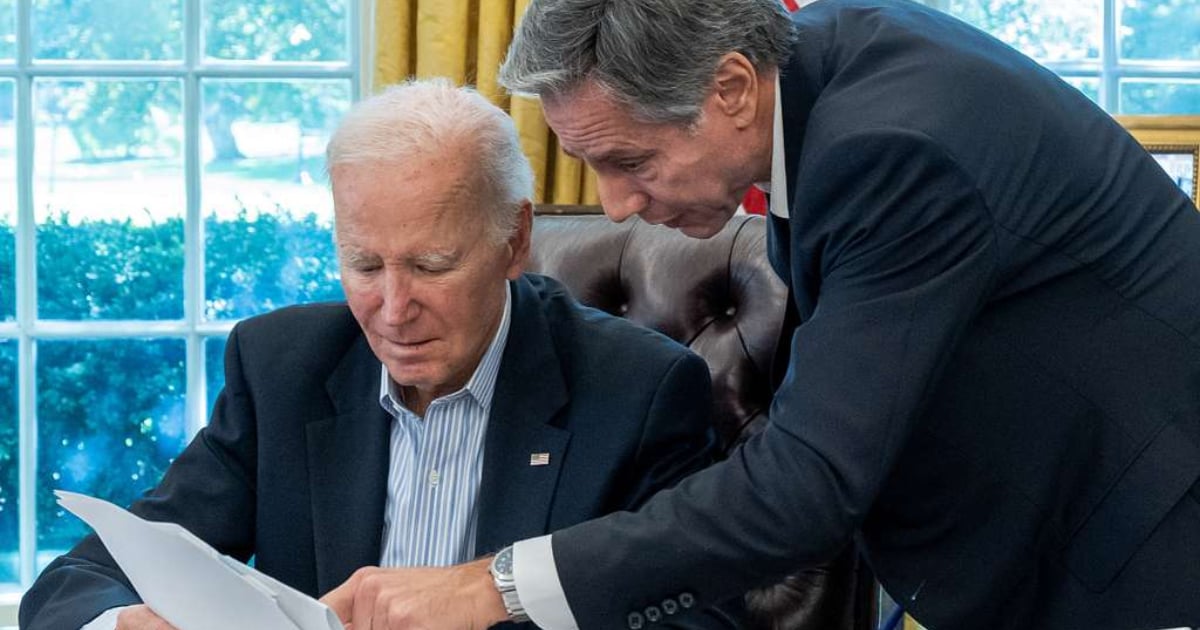
Related videos:
President Joe Biden does not plan to change his policy towards Cuba before the end of his term on January 20, announced U.S. Secretary of State Antony Blinken on Wednesday.
During an appearance before a parliamentary committee, the official stated that he does not anticipate any changes in the policy towards Cuba before Biden leaves office.
"The head of U.S. diplomacy confirmed, 'I do not anticipate any changes in our policy towards Cuba by this administration.'"
When asked whether the U.S. government was considering removing Cuba from the list of state sponsors of terrorism before the end of Biden's term, Blinken reiterated, "As I said, I do not anticipate any change."
Cuba's inclusion on this list, dating back to 1982, imposes a series of severe economic sanctions on the island, which in turn uses it to blame the United States for the poor performance of its economy and the widespread crisis.
Cuba was removed from the list in 2015 by President Barack Obama as part of his policy of normalizing relations with the Cuban regime.
However, Donald Trump included Cuba back on the list during his term, just one week before leaving office, a measure that has been upheld by the Biden administration, despite some sectors expecting it might be reversed.
The sanctions linked to Cuba's designation as a state sponsor of terrorism hinder the country's access to international financing and further exacerbate the economic and political tensions between the two nations.
However, so far, the Biden administration has not taken concrete steps to amend this designation, something many thought might happen at the last minute, much like what occurred with President Barack Obama, who repealed the so-called "Wet Foot, Dry Foot" policy just three days before leaving office.
Frequently asked questions about the United States' policy towards Cuba under the Biden administration.
Will Joe Biden's policy towards Cuba change before the end of his term?
No, Joe Biden does not plan to modify his policy towards Cuba before his term ends on January 20, according to U.S. Secretary of State Antony Blinken. This means there will be no changes to the sanctions or to Cuba's designation as a state sponsor of terrorism.
What are the consequences of Cuba remaining on the list of state sponsors of terrorism?
Cuba's inclusion on the list of state sponsors of terrorism imposes severe economic sanctions that hinder the island's access to international funding. This situation exacerbates the economic and political tensions between the United States and Cuba, complicating efforts to improve bilateral relations.
What has been the Biden administration's stance on the economic embargo against Cuba?
The Biden administration has extended the economic embargo on Cuba until 2025. This embargo, in place since 1960, has been renewed annually by successive administrations and continues to be a source of international controversy. While some sectors are calling for its lifting to alleviate the economic situation in Cuba, the official stance remains in favor of maintaining the embargo.
What impact could Donald Trump's return to the presidency have on U.S. policy towards Cuba?
Donald Trump's return could signify a toughening of policies towards Cuba. During his previous term, Trump reinstated several sanctions and designated Cuba as a state sponsor of terrorism. If he returns to the presidency, he is expected to maintain a hardline approach that could include further economic and immigration restrictions.
Filed under: